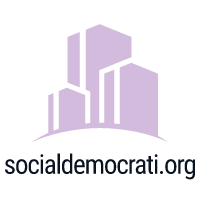The property market is sensitive to many external factors, among which political decisions are not the least important. These decisions can both stimulate the development of the industry and impose certain restrictions, affecting the value of properties, supply and demand, and the investment attractiveness of regions.
Policy measures and their direct impact
- Changing tax policy: introducing tax incentives for investors or increasing taxes on property ownership.
- Regulation of mortgage lending: tightening or loosening of mortgage conditions.
- Land policy: changes in legislation concerning land use and development.
- State investment programmes: financing of housing construction for certain categories of citizens.
- International sanctions or trade restrictions: impact on the cost and availability of building materials.
- Local policy decisions: development of infrastructure projects, improvement of transport accessibility of neighbourhoods.
Regulation of mortgage lending
Regulation of mortgage loan terms has a direct impact on demand in the residential property sector. Central banks’ key rate policy directly affects the cost of borrowing for buyers. Tighter requirements for borrowers may reduce the number of potential buyers in the market, leading to a drop in demand and stabilisation or reduction in property prices.
Changes in tax policy
Revisions to tax rates and conditions associated with property ownership and transactions have a significant impact on economic activity in the industry. The introduction of favourable tax conditions for property developers can be a powerful incentive for construction development, offering companies opportunities to reduce costs and increase the volume of projects undertaken.
This, in turn, contributes to the expansion of supply in the market, lowering prices for end consumers and improving the overall level of housing affordability.
At the same time, higher property ownership taxes for individuals may lead to less interest in purchasing housing as an investment asset, thereby reducing demand and putting pressure on prices. This can have both positive and negative effects depending on the current economic situation and housing policy objectives.

State investment programmes
Such initiatives may include financing the construction of affordable housing, supporting young families and socially vulnerable groups in purchasing housing, and developing urban infrastructure, which directly contributes to making regions more attractive for living and investing.
Investments in infrastructure projects such as roads, public transport, parks and educational facilities improve the quality of life of the population and increase property values in these areas. This creates favourable conditions for business development, attracts new investors and stimulates the growth of the economy as a whole.
Thus, the policy decisions and initiatives taken in the areas of taxation and investment support play a critical role in the development of the property market. They can both open new opportunities for growth and development and present certain challenges for market participants. A thorough understanding of these aspects enables developers, investors and buyers to navigate changing market conditions more effectively and make informed decisions.
Land policy and its role in property market development
Adoption of legislative acts aimed at simplifying procedures for obtaining land plots for development can significantly accelerate the start of construction, reducing developers’ costs. This, in turn, contributes to an increase in supply on the housing and commercial property market, making investment in this sector more attractive.
On the other hand, imposing restrictions on the use of land plots, such as the protection of historical zones or environmental regulations, can significantly affect the development plans of urban and suburban areas. Such measures aim at preserving cultural and natural heritage, but may limit development opportunities, leading to an increase in the value of properties in neighbouring areas where construction is still allowed.
Analysing and understanding land policies is essential for investors and developers, as these aspects can have a significant impact on the profitability of projects. Promptly reacting to changes in legislation, participating in discussions of innovations and adapting development strategies to new conditions are key to successful operation in the property market.
International sanctions and trade restrictions
International sanctions and trade restrictions may have a significant impact on the property market, primarily through changes in the cost and availability of construction materials. Higher prices for imported materials result in an increase in the cost of construction, which may deter the launch of new projects and increase the cost of finished housing and commercial properties. In the long term, this leads to lower affordability of housing for the population and reduces the investment attractiveness of the market.
Trade restrictions may also affect the volume of foreign direct investment in the construction sector and property market. Foreign investors, faced with uncertainty and possible risks associated with the political situation, may refuse to participate in large projects or look for more stable markets to invest in.
FAQ
Reliefs can incentivise construction, increasing supply and reducing the cost of housing, while tax increases reduce the attractiveness of investment and may reduce demand.
Tightening requirements for borrowers can reduce the number of potential buyers, reducing demand and putting pressure on house prices.
International sanctions can reduce the availability of construction materials, increasing the cost of projects and making new construction less attractive.

